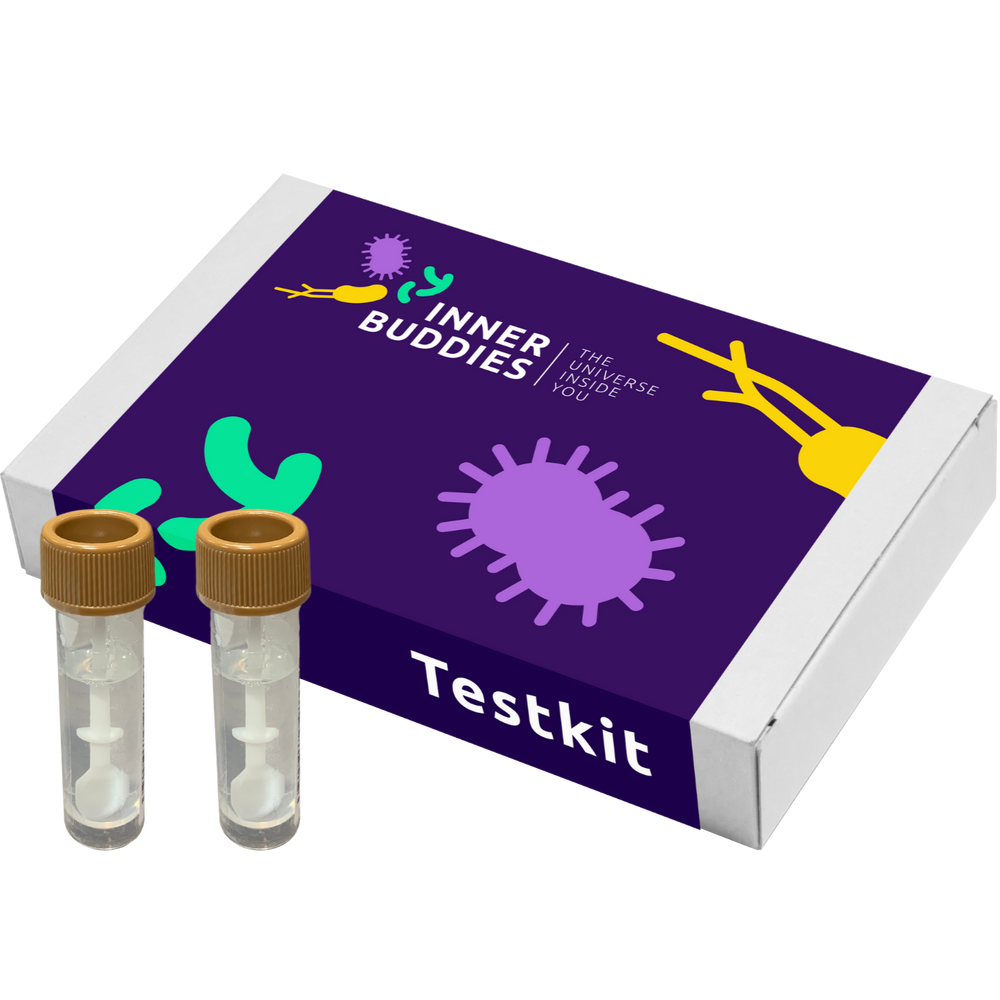
Plant-Based Diets Can Keep Your Gut Happy
Are you someone who is doing your best to be healthy and ‘make the right choices’ when it comes to nutrition, health, and wellness? If that’s you, then be sure to read through this article until the very end, and give yourself a well-deserved pat on the back for committing to investing in your health. As you will soon discover, cultivating good health is significantly impacted by maintaining a healthy gut.
One of the ‘healthy habits’ you may have heard of is adopting a plant-based diet. Plant-based diets can, indeed, have profound effects on your health and wellness. In this article, we highlight some of the ways that plant-based diets can positively impact the health of your gut, and as a consequence, your overall health. Before we start diving into the link between plant-based diets and gut health, let's take a moment to clarify what plant-based diets are.
Studies found that adopting a predominantly plant-based diet may not only help to improve your gut microbiome but also produce more so-called short-chain fatty acids (SCFAs) which participate in several health processes. One of the reasons why your gut bacteria can produce these healthy SCFA compounds is because of the fibre found in plants. Eating more plant fibre has been shown to increase the diversity in your gut microbiota and protect the gut barrier itself, preventing pathogenic bacteria from growing and colonizing its lining. Not only that, but it also boosts populations of beneficial bacteria in our guts, rather than encouraging the development of disease-causing ones.
Talking about fibre, one of the reasons why a variety of vegetables are so important for gut health is because of their high fibre content. A lot of the fibre found in vegetables is either partially, or not digestible at all by humans. Rather, this fibre makes its way down to your large intestines where your good gut bacteria can feast on them. They can use this as food and they can use it to produce beneficial SCFAs, as mentioned. Another way to help create a balanced and healthy microbial environment in your gut is to consume more fermented foods. When added to a plant-based diet, fermented foods, like certain fermented vegetables, legumes and beverage products, may support your gut health.
All of this means that a balanced, plant-based, fibre-rich diet full of fruits, vegetables, whole grains, and legumes may have great benefits to the gut microbiota. The microorganisms that constitute your gut microbiota are very sensitive to your diet, meaning that adopting this plant and fibre-rich way of eating is essential for ensuring a balanced gut environment.
If you have made it this far, you might be tempted to build an eating plan that includes foods that support gut health, hence rich in plant-based foods. Adopting a plant-based lifestyle may define the path to gut health while ensuring several health benefits. Besides replacing animal products with plant-based alternatives, you may also want to reduce your intake of highly processed foods to give an additional boost to your gut microbiome.
There is no better way to embrace gut health than by revamping your diet. Whether you're sensing the need for a system-wide health boost, or simply aiming to improve digestion, a diet focused on gut health can be a potent tool. The good news is that it doesn’t need to be difficult or daunting to take control of your gut health. Not only that but adopting healthy plant-based diets may shift your gut microbiota composition towards a more favourable one within as little as a few days. A balanced diet constituted of healthy, fibre-rich foods is crucial to step closer to the health-promoting side. By now you should know that keeping your gut microbiome healthy is, without a doubt, one of the easiest things we can do to support good health. After all, it just needs a little refinement in your current diet if you have not done it yet.
Benefits from adopting a plant-based regimen are not limited to gut health but it may also contribute to mental health and regulate your digestive system. Furthermore, studies show that eating a plant-based diet and avoiding highly processed foods, may support a healthier metabolism, better blood sugar control, and better cardiovascular health. Maintaining a healthy gut through eating a variety of whole foods is recommended for optimal health promotion, prevention of major illnesses, and general well-being.
Now that you know how important maintaining a healthy gut is, it is time to adjust your diet and nourish your gut bacteria by increasing fibre consumption and feeding the gut microbiota with all of the nutrients it needs. Various foods, including fibre-rich vegetables, low-sugar whole fruits, legumes, whole grains, plant proteins, and probiotics, help maintain the diversity of the microbial community. Consuming probiotic foods, plant-based fermented foods and drinks such as sauerkraut, kimchi, kombucha, miso, and tempeh can help to repopulate your gut with microbes and enhance gut health.
To conclude, the path toward health may be different for each person depending on the physiological state we are in. What works for you may not work for your loved ones and vice-versa. Before you start your diet revolution by shifting to a vegan diet, introducing wholesome plant foods, or cutting down particular ingredients over others, make sure to first check whether this is the right path to go.
It has never been easier or more accessible to get to know your gut flora and receive personalized food recommendations based on your results. Start adopting the right path that fits you today. Explore your inner universe by collecting your stool sample with a microbiome kit.
One of the ‘healthy habits’ you may have heard of is adopting a plant-based diet. Plant-based diets can, indeed, have profound effects on your health and wellness. In this article, we highlight some of the ways that plant-based diets can positively impact the health of your gut, and as a consequence, your overall health. Before we start diving into the link between plant-based diets and gut health, let's take a moment to clarify what plant-based diets are.
What is Plant-Based Anyways?
‘Plant-based’ has become a trendy term that probably fills your Google searches and social media timelines these days.
Ideas such as steering clear of processed foods or reducing the consumption of animal products have likely become common themes when you engage in conversations about plant-based eating. You might have even labelled yourself as a follower of a plant-based diet, given the various interpretations that exist. Nevertheless, researchers are uncovering a different perspective, and the current understanding sheds new light on the matter.
What do researchers say about a plant-based diet?
Researchers, professors, and clinicians call for an urgent consensus definition to avoid confusion when the term ‘plant-based’ is used. In fact, to date, we see this new trendy buzzword in each headline of blog posts (including this one), recipes we read, and the foods we buy. However, requirements to define what is plant-based and what is not still lack proper harmonization. Until the scientific community assesses this issue thoroughly, we can argue that those who follow a plant-based regimen eat primarily, or solely, plant foods with few or no ingredients that come from animals.So, do you still identify as plant-based?
Why Should You Try a Plant-Based Diet?
Recent findings published in top-tier journals reveal how the gut microbiome, a driver of your health, may be influenced positively by following a plant-based diet. The path to a happy and healthy gut seems to be linked closely to consuming a diverse array of plant foods. Researchers have looked at the differences within individuals' gut microbiomes when following different dietary patterns and found that a diet free or with reduced consumption of meat can increase microbial diversity - AKA a healthy gut microbiome.Studies found that adopting a predominantly plant-based diet may not only help to improve your gut microbiome but also produce more so-called short-chain fatty acids (SCFAs) which participate in several health processes. One of the reasons why your gut bacteria can produce these healthy SCFA compounds is because of the fibre found in plants. Eating more plant fibre has been shown to increase the diversity in your gut microbiota and protect the gut barrier itself, preventing pathogenic bacteria from growing and colonizing its lining. Not only that, but it also boosts populations of beneficial bacteria in our guts, rather than encouraging the development of disease-causing ones.
Talking about fibre, one of the reasons why a variety of vegetables are so important for gut health is because of their high fibre content. A lot of the fibre found in vegetables is either partially, or not digestible at all by humans. Rather, this fibre makes its way down to your large intestines where your good gut bacteria can feast on them. They can use this as food and they can use it to produce beneficial SCFAs, as mentioned. Another way to help create a balanced and healthy microbial environment in your gut is to consume more fermented foods. When added to a plant-based diet, fermented foods, like certain fermented vegetables, legumes and beverage products, may support your gut health.
All of this means that a balanced, plant-based, fibre-rich diet full of fruits, vegetables, whole grains, and legumes may have great benefits to the gut microbiota. The microorganisms that constitute your gut microbiota are very sensitive to your diet, meaning that adopting this plant and fibre-rich way of eating is essential for ensuring a balanced gut environment.
If you have made it this far, you might be tempted to build an eating plan that includes foods that support gut health, hence rich in plant-based foods. Adopting a plant-based lifestyle may define the path to gut health while ensuring several health benefits. Besides replacing animal products with plant-based alternatives, you may also want to reduce your intake of highly processed foods to give an additional boost to your gut microbiome.
There is no better way to embrace gut health than by revamping your diet. Whether you're sensing the need for a system-wide health boost, or simply aiming to improve digestion, a diet focused on gut health can be a potent tool. The good news is that it doesn’t need to be difficult or daunting to take control of your gut health. Not only that but adopting healthy plant-based diets may shift your gut microbiota composition towards a more favourable one within as little as a few days. A balanced diet constituted of healthy, fibre-rich foods is crucial to step closer to the health-promoting side. By now you should know that keeping your gut microbiome healthy is, without a doubt, one of the easiest things we can do to support good health. After all, it just needs a little refinement in your current diet if you have not done it yet.
Benefits from adopting a plant-based regimen are not limited to gut health but it may also contribute to mental health and regulate your digestive system. Furthermore, studies show that eating a plant-based diet and avoiding highly processed foods, may support a healthier metabolism, better blood sugar control, and better cardiovascular health. Maintaining a healthy gut through eating a variety of whole foods is recommended for optimal health promotion, prevention of major illnesses, and general well-being.
Now that you know how important maintaining a healthy gut is, it is time to adjust your diet and nourish your gut bacteria by increasing fibre consumption and feeding the gut microbiota with all of the nutrients it needs. Various foods, including fibre-rich vegetables, low-sugar whole fruits, legumes, whole grains, plant proteins, and probiotics, help maintain the diversity of the microbial community. Consuming probiotic foods, plant-based fermented foods and drinks such as sauerkraut, kimchi, kombucha, miso, and tempeh can help to repopulate your gut with microbes and enhance gut health.
To conclude, the path toward health may be different for each person depending on the physiological state we are in. What works for you may not work for your loved ones and vice-versa. Before you start your diet revolution by shifting to a vegan diet, introducing wholesome plant foods, or cutting down particular ingredients over others, make sure to first check whether this is the right path to go.
It has never been easier or more accessible to get to know your gut flora and receive personalized food recommendations based on your results. Start adopting the right path that fits you today. Explore your inner universe by collecting your stool sample with a microbiome kit.
Reference
- Storz, M.A. What makes a plant-based diet? a review of current concepts and proposal for a standardized plant-based dietary intervention checklist. Eur J Clin Nutr 76, 789–800 (2022). https://doi.org/10.1038/s41430-021-01023-z
- Holscher H. D. (2020). Diet Affects the Gastrointestinal Microbiota and Health. Journal of the Academy of Nutrition and Dietetics, 120(4), 495–499. https://doi.org/10.1016/j.jand.2019.12.016
- David, L. A., Maurice, C. F., Carmody, R. N., Gootenberg, D. B., Button, J. E., Wolfe, B. E., Ling, A. V., Devlin, A. S., Varma, Y., Fischbach, M. A., Biddinger, S. B., Dutton, R. J., & Turnbaugh, P. J. (2014). Diet rapidly and reproducibly alters the human gut microbiome. Nature, 505(7484), 559–563. https://doi.org/10.1038/nature12820
- Willis, H. J., & Slavin, J. L. (2020). The Influence of Diet Interventions Using Whole, Plant Food on the Gut Microbiome: A Narrative Review. Journal of the Academy of Nutrition and Dietetics, 120(4), 608–623. https://doi.org/10.1016/j.jand.2019.09.017




0 comments